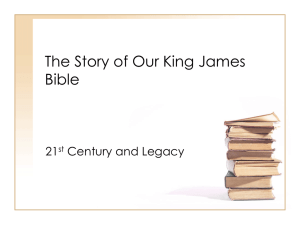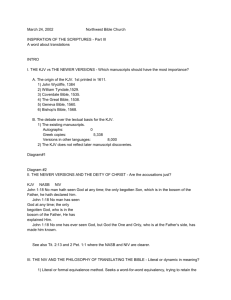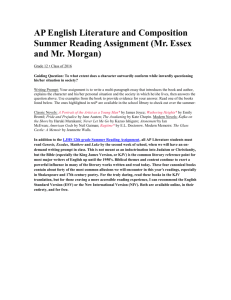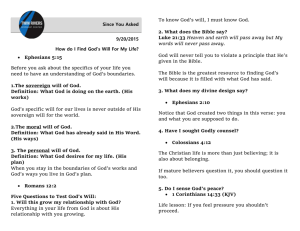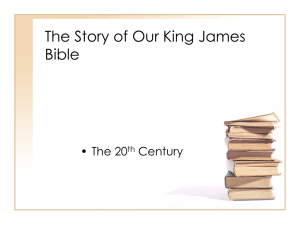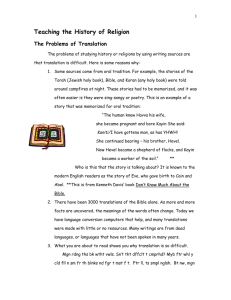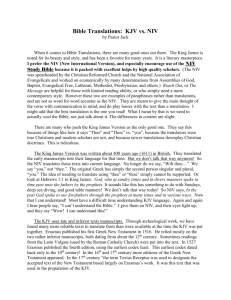Times Article for "Dumbing down or Sharpening Up? The Church`s
advertisement
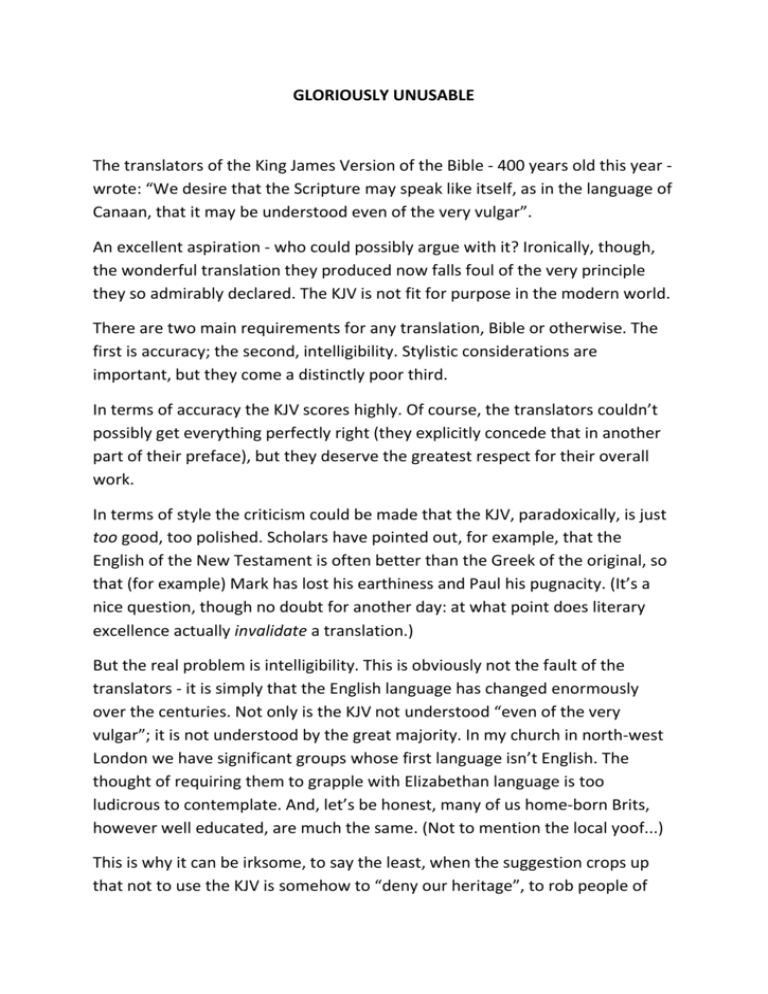
GLORIOUSLY UNUSABLE The translators of the King James Version of the Bible - 400 years old this year wrote: “We desire that the Scripture may speak like itself, as in the language of Canaan, that it may be understood even of the very vulgar”. An excellent aspiration - who could possibly argue with it? Ironically, though, the wonderful translation they produced now falls foul of the very principle they so admirably declared. The KJV is not fit for purpose in the modern world. There are two main requirements for any translation, Bible or otherwise. The first is accuracy; the second, intelligibility. Stylistic considerations are important, but they come a distinctly poor third. In terms of accuracy the KJV scores highly. Of course, the translators couldn’t possibly get everything perfectly right (they explicitly concede that in another part of their preface), but they deserve the greatest respect for their overall work. In terms of style the criticism could be made that the KJV, paradoxically, is just too good, too polished. Scholars have pointed out, for example, that the English of the New Testament is often better than the Greek of the original, so that (for example) Mark has lost his earthiness and Paul his pugnacity. (It’s a nice question, though no doubt for another day: at what point does literary excellence actually invalidate a translation.) But the real problem is intelligibility. This is obviously not the fault of the translators - it is simply that the English language has changed enormously over the centuries. Not only is the KJV not understood “even of the very vulgar”; it is not understood by the great majority. In my church in north-west London we have significant groups whose first language isn’t English. The thought of requiring them to grapple with Elizabethan language is too ludicrous to contemplate. And, let’s be honest, many of us home-born Brits, however well educated, are much the same. (Not to mention the local yoof...) This is why it can be irksome, to say the least, when the suggestion crops up that not to use the KJV is somehow to “deny our heritage”, to rob people of “this precious literary jewel”, and in general to act like a bunch of cultural vandals. The Bible was never meant to be treated as a literary masterpiece. Isaiah wanted to change people’s minds and hearts, not to have them drooling over his poetry. Even Luke, the sophisticated doctor who wrote the gospel and Acts, was primarily concerned with setting the facts out straight (he plainly says so), so that his readers might understand and believe. So when I hear people (many of whom, I suspect, never go anywhere near a church) rhapsodising dewy-eyed over its “glorious cadences”, I find it hard to choke down the response, “Aw, gimme a break”. But if this is right, the question arises, what instead? The main problem here is the sheer proliferation of versions, all with their strengths and weaknesses. Just three of the leading contenders are the very popular New International Version, the New Revised Standard Version (probably the preferred version of the academics), and the Good News Bible, complete with its delightful line drawings. You pays yer money... Whichever we opt for, we need all the help we can get - the Bible is, after all, a large collection of often very difficult ancient documents. Many translations come with background material - explanatory notes, maps, time-charts - and the extra cost involved is well worthwhile. Commentaries, Bible dictionaries and paraphrases are also vital for anyone serious about Bible-reading. The American Eugene Peterson, for example, has done for the whole Bible (a truly prodigious achievement, this) what JB Phillips did over fifty years ago for the New Testament. True, his paraphrase The Message is very free, and doesn’t always cross the Atlantic too comfortably. But read alongside a tighter rendering, it does much to bring the Bible to life. The work of such scholars stands four-square in the honourable tradition of the KJV translators - aiming to do for us in the twenty-first century what their predecessors did even for the very vulgar in the seventeenth. They equally deserve our thanks.
